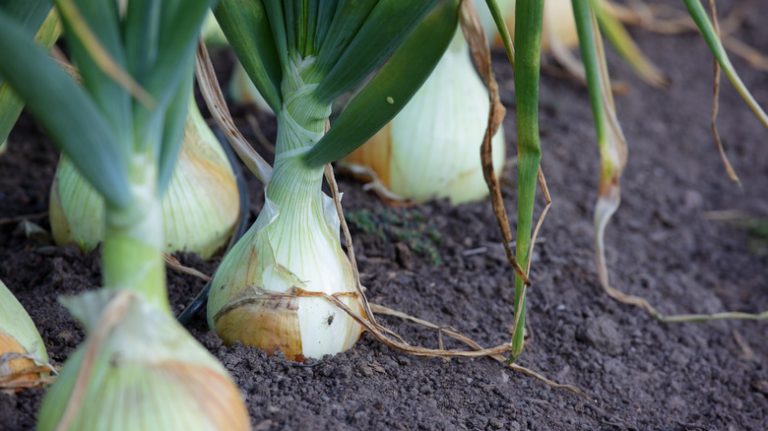Coconut oil is a versatile ingredient. There are unique ways you can use coconut oil around your house, including for cooking, skincare, and even your pets. But did you know the tropical oil comes in handy outside, too? It is an all-natural way to increase the health of the soil and plants while taking care of unwanted garden visitors.
There are two types of coconut oil — refined and unrefined. The refined oil goes through more processing, like bleaching and deodorizing, to ensure it is safe to cook with. You can use either for these gardening hacks. They both have similar makeups in terms of nutrients, fats, and lauric acid. But if you’re a stickler about the more natural ingredients, unrefined coconut oil is the way to go, also referred to as virgin coconut oil. And you don’t have to splurge on the most expensive brand for these tricks. Walmart sells 14-ounce jars for $6.
Use it as an organic herbicide
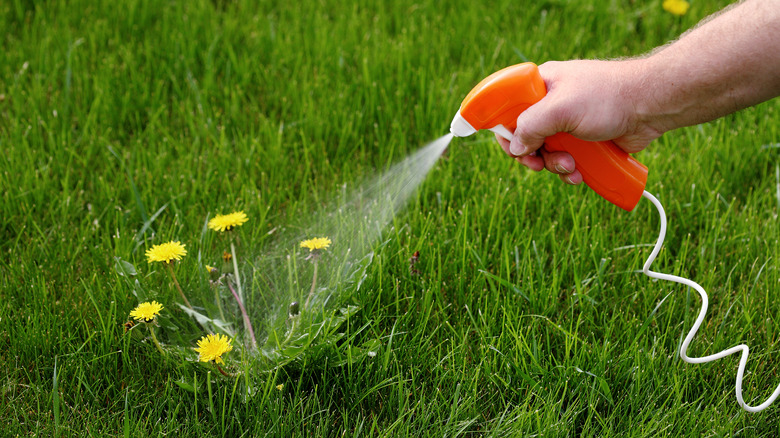
Traditional herbicides contain toxic chemicals that leach into the soil and water, but you can use coconut oil as a chemical-free herbicide to eliminate weeds. The oil’s fatty acids disrupt the plant’s photosynthesis. Therefore, weeds can’t convert sunlight into food to stay alive. There are already coconut oil-based weed killers on the market, but you can DIY the solution. Heat equal parts coconut and vegetable oil until melted, then whisk the oils until combined, and transfer the liquid into a spray bottle. Thoroughly spritz any unwanted plants daily for up to two weeks. Once the weeds wilt, uproot them, and spray the ground to finish off any roots.
Repel garden pests
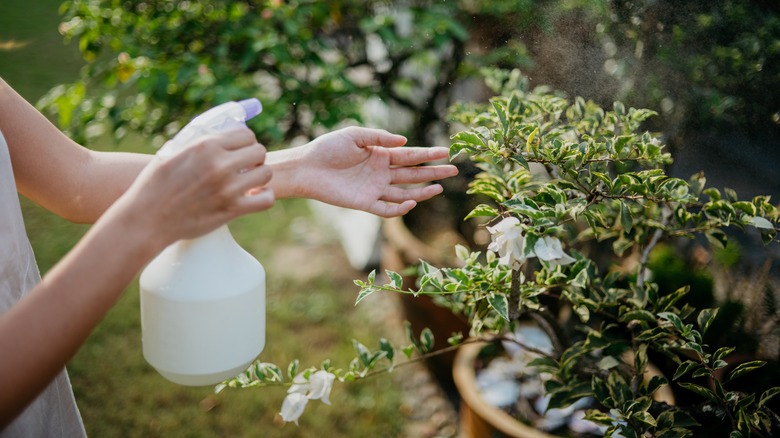
The fatty acids in coconut oil strike again, but this time against bugs. A 2024 research study published in Scientific Reports found that the compounds in coconut oil were effective at repelling insects like mosquitoes, ticks, biting flies, and bed bugs. The oil itself may also be deadly against common garden pests like mealybugs, mites, aphids, and caterpillars. To make the toxic-free pesticide, just add 1 tablespoon of coconut oil to a gallon of water and two drops of nondetergent soap.
Shine foliage
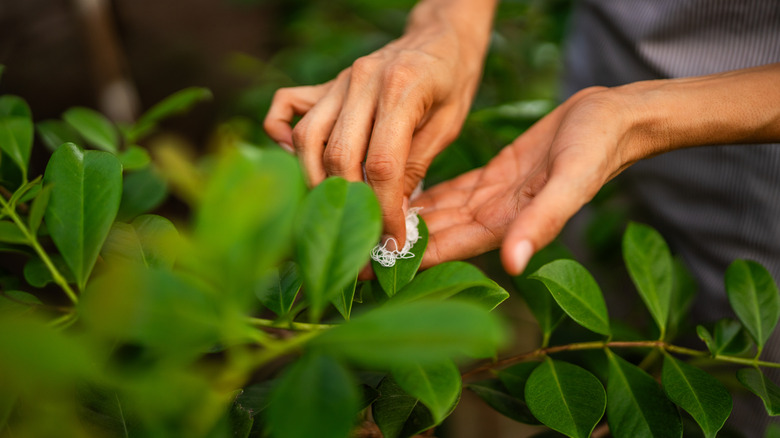
Fg Trade Latin/Getty Images
For potted plants, coconut oil can keep the leaves shiny and moisturized. With a cloth, gently massage a thin layer of oil onto clean leaves. Keep in mind that this benefits indoor houseplants or greenery you can transfer inside and not foliage in garden beds, as after applying the oil, you need to keep the plants out of direct sunlight to prevent them from burning. Coconut oil will give the leaves a shiny finish and minimize dust buildup.
Condition your garden soil
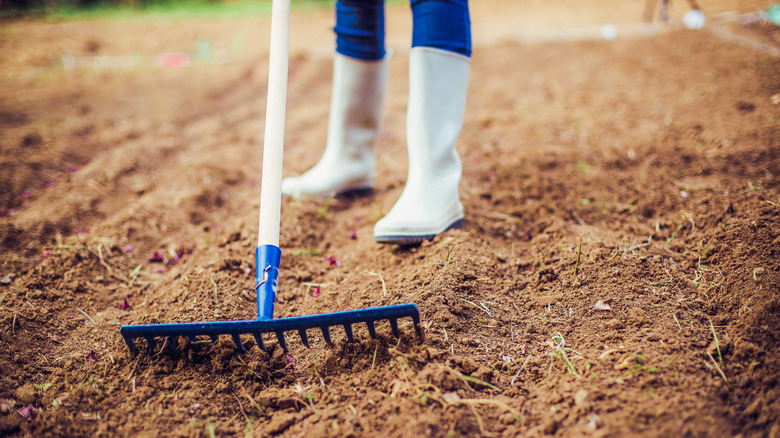
Lukatdb/Getty Images
Coconut oil is not only good for leaves but also for soil. You can mix the tropical oil with liquid compost or fertilizer to boost the nutrients’ ability to absorb into the soil. The oil will act as a surfactant when added to the organic matter, which will increase the fertilizer’s spreading and wetting qualities. Coconut oil also has anti-fungal properties, and adding it is a great way to amend store-bought soil to improve the life of your plants.
Clean gardening tools
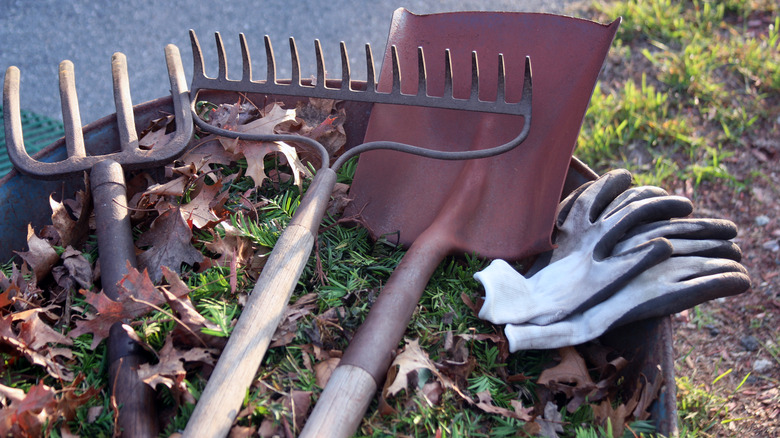
Jsmith/Getty Images
After the soil gets a drink of coconut oil, hand some over to your hardworking garden tools. A little oil and a dry cloth go a long way to remove rust, moisturize wood handles, and shine metal edges. You can use it on all your equipment, from large rakes to handheld trowels. Keep the oil close by for routine maintenance on your landscaping tools to prevent dirt and corrosion buildup while keeping them looking like new.
Prevent grass from clogging the lawnmower
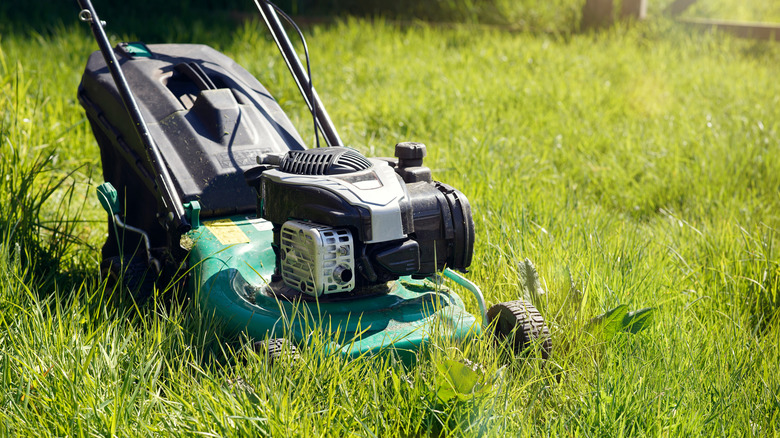
Brian A Jackson/Shutterstock
Don’t skip your lawnmower when you grease your gardening equipment. Lubricating it with coconut oil will keep grass clippings and dirt from caking the machinery and diminishing its functionality. First, ensure the device is disconnected and turned off. Next, clean the blades — brush off any dirt, rinse with water, and dry them with a cloth. Then, coat them with a thin layer of coconut oil.



